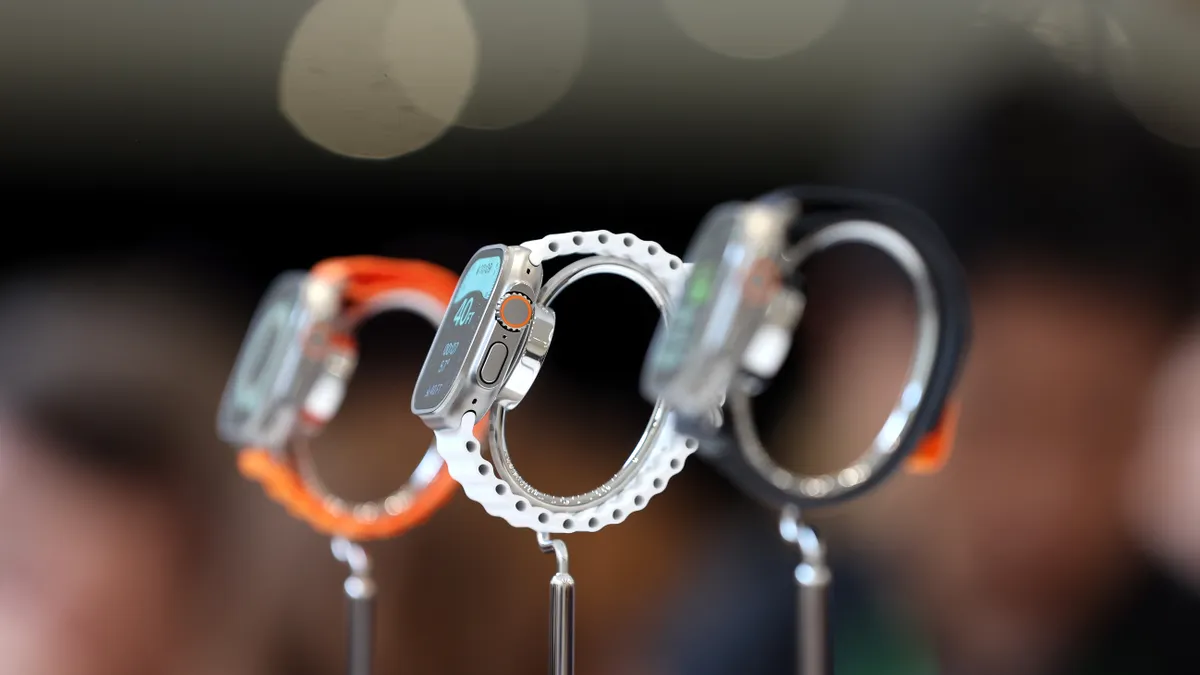Dive Brief:
- Apple smartwatches at the center of a patent dispute with medtech company Masimo are back on the market after a court temporarily blocked a federal order to remove them.
- Masimo triumphed against Apple last month in its battle over pulse oximetry technology when the Biden administration let stand a U.S. International Trade Commission (ITC) decision ordering the tech giant to stop importing and selling some versions of the Apple Watch. But the victory was short-lived.
- Last week, a federal appeals court granted Apple’s emergency motion to pause the ITC order while it considers the company’s request for a longer stay of the ban, according to court documents. Analysts said it is unclear how long the appeals process will take.
Dive Insight:
Masimo accused Apple of misappropriating its technology for measuring blood oxygen levels. The ITC agreed, ruling in October that Apple infringed two of the patient monitoring company’s patents.
Masimo CEO and founder Joe Kiani, an engineer who co-invented the pulse oximetry technology, called the commission’s finding “a powerful message” that the world’s largest company is not above the law.
Apple appealed the ITC ruling in federal court but stopped selling the Series 9 and Ultra 2 watches just before Christmas in what it called a pre-emptive step to comply with the order.
The ITC’s decision became final on Dec. 26, when U.S. Trade Representative Katherine Tai decided not to reverse the determination at the end of a 60-day review period.
However, the U.S. Court of Appeals for the Federal Circuit paused the ITC ban the next day. The court gave the commission until Jan. 10 to oppose the motion and gave Apple until Jan. 15 to reply.
In addition, an Apple attorney told the court that a U.S. customs office is scheduled to issue a decision on Jan. 12 on the company’s proposed redesign for its watches.
BTIG analyst Marie Thibault said it is unclear how long it will take the court to rule on Apple's motion for a stay of the ITC order after Jan. 15. “It is also difficult for us to handicap how likely it is that the U.S. Customs and Border Protection will rule in Apple's favor,” Thibault wrote in a Dec. 27 note to clients.
The Apple Watch generates 5% of the company’s revenues, which “isn’t that material,” Barclays analyst Tim Long told Medtech Dive Tuesday in an email. Long downgraded Apple shares to “underweight” from “equal weight” on Tuesday, citing lackluster volumes for the iPhone 15 and expectations for a similar response to the iPhone 16.
Apple introduced the blood oxygen sensor and app in 2020 in its Series 6 watches.











